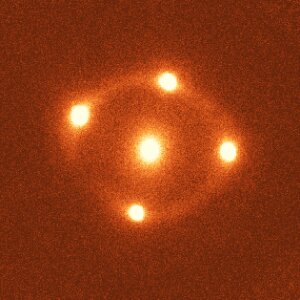steve_bank
Diabetic retinopathy and poor eyesight. Typos ...
On pop science shows and science news segments the BB Theory is stated as true without any quantification.
Do yiu believe the BB Theory is true, and why.
As the theorized event is not demonstrable I consider the BB a good theory but not truth.
When String Theory was introduced some scientists compressed it phi;philosophy because there was no way to test it.
To me the BB Theory has become a popular secular cation myth.
In fact it does not explain or address ultimate origins of the universe. There is no explanation of where the imagined initial conditions came from.
The BB is also based on the limits ofur ability to detect EM radiation. Hubble was able to show a high nu,er of galxies i a region which they were not visble with ground based optics.
I used to have a poster of the image in my office for inspiration.
What would the universe look e from what we consider the farthest observable objects. How would we know that?
Do yiu believe the BB Theory is true, and why.
As the theorized event is not demonstrable I consider the BB a good theory but not truth.
When String Theory was introduced some scientists compressed it phi;philosophy because there was no way to test it.
To me the BB Theory has become a popular secular cation myth.
In fact it does not explain or address ultimate origins of the universe. There is no explanation of where the imagined initial conditions came from.
The BB is also based on the limits ofur ability to detect EM radiation. Hubble was able to show a high nu,er of galxies i a region which they were not visble with ground based optics.
I used to have a poster of the image in my office for inspiration.
What would the universe look e from what we consider the farthest observable objects. How would we know that?

